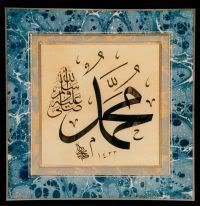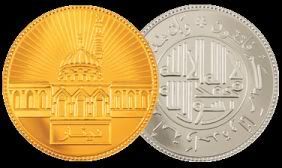THE ECONOMIST: CHINA is not the only financial powerhouse with its hungry eye on Africa. Flush with oil wealth, the Gulf states, too, are spying profitable opportunities among the hundreds of millions of Muslims who live just a hop across the Red Sea. Africa's economies are growing fast, thanks in large part to the commodities boom. Although many people on the continent do not have a bank account, the banking systems in some countries are growing increasingly sophisticated. Bankers from the Gulf hope that the middle class, particularly in the Muslim north, will turn to Islamic finance, and that firms will raise money through Islamic bonds, known as sukuk. Moody's, a credit-rating agency, reckons that although Islamic finance was worth a puny $18 billion at the end of last year, its potential is close to $235 billion—about half what it estimates as the GDP of Africa's Muslim population.
So far, forays from the Gulf into Africa have been limited to a few countries. Sudan—where only sharia-compliant finance is allowed in the north—dominates, holding over half of Africa's Islamic-banking assets. A number of Gulf banks, familiar with the country's language and oil resources, have joined forces with Sudanese investors to open Islamic banks. Last year the first sukuk from Africa was issued by a Sudanese cement firm. Reportedly, the government also tapped the market in January—selling bonds to Gulf investors to sidestep American economic sanctions over the massacres in Darfur.
But Sudan's banking industry remains embryonic and few African countries combine the strong desire to promote Islamic banking with heavy demand from Muslim customers. “Islamic banking is a luxury product,” admits Anouar Hassoune of Moody's: it tends to do better in places with established banking systems, such as South Africa and Kenya. South Africa's only Islamic bank, Albaraka, was set up in 1989. Last year the Kenyan authorities licensed two Islamic banks, Gulf African Bank and First Community Bank, both backed by Gulf investment.
Western banks are also dipping their toes in. In Kenya Barclays was the first to offer an Islamic bank account appropriately named La Riba, meaning “no interest”. South Africa's ABSA opened an Islamic banking division in 2006. It offers phone, internet and branch banking. Its head, Ahmed Moola, says the division was profitable last year, though he declines to discuss numbers. Turning towards Mecca: Islamic banks join the race for Africa >>> |May 8, 2008
The Dawning of a New Dark Age (Paperback - UK)
The Dawning of a New Dark Age (Hardback - UK)
Mecca,

